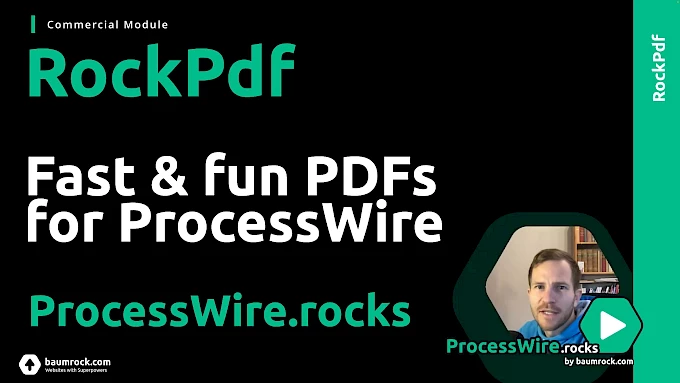FAQ
-
Why does the module need RockFrontend?
RockFrontend is used to render the markup files that later generate the PDF. On the one hand, this allows the use of template engines (LATTE by default) and on the other hand, it is used to parse the stylesheets, which makes it possible to work with LESS instead of CSS. RockFrontend also offers many other helpers that I would otherwise have had to implement and maintain twice.
-
Do I also have to build my website with RockFrontend?
No, of course not. RockFrontend is used in the background when you create a PDF. How you create the frontend of your website is of course completely up to you!
You have another question?
Many modules, ONE standardised price.
Choose your plan
Single: If you build one website for one client you can choose the Single license.
Unlimited: If you build multiple websites for multiple clients you can either buy a Single license for each project or you buy the Unlimited license.
RockSuite/SaaS: If you build one website where multiple clients are charged for using that software then you need a RockSuite license for that project.
Are you wondering whether you can renew your licence or updates? Please read the terms and conditions for modules!
